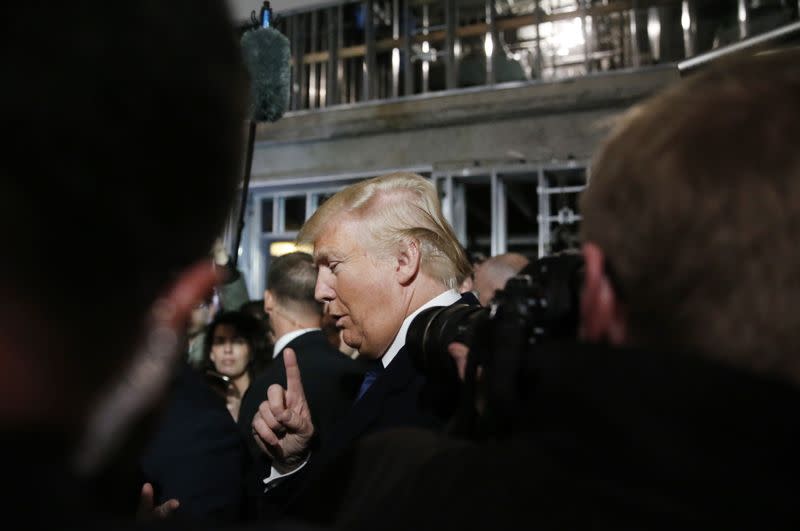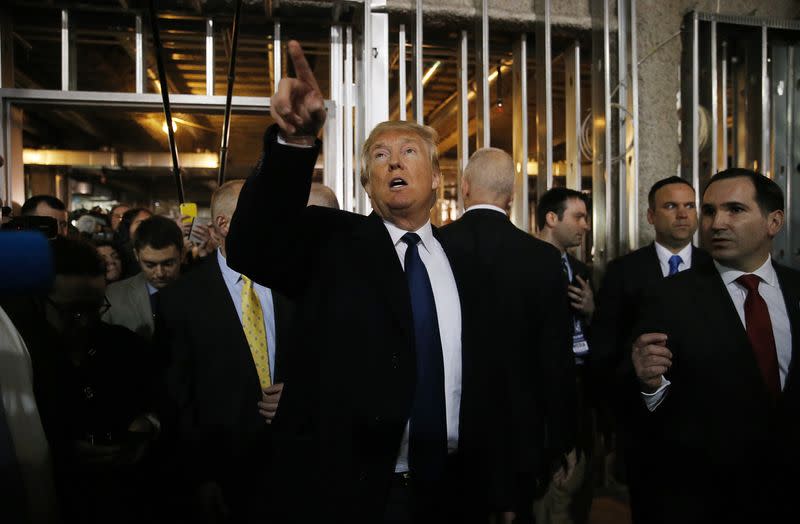U.S. Supreme Court to hear dispute over Democratic bid for Trump hotel documents
By Andrew Chung
(Reuters) -The U.S. Supreme Court on Monday agreed to hear a bid by President Joe Biden's administration to block a lawsuit by several congressional Democrats seeking details of a government lease for a Washington hotel concerning when it was owned by his predecessor Donald Trump.
The justices took up an appeal by the General Services Administration (GSA), which manages federal government real estate, of a lower court's ruling allowing the lawsuit by U.S. House of Representatives Democrats to proceed. The lawmakers sued after the agency declined to provide details of a 2013 lease of the Old Post Office building to the Republican former president's company to convert it into a hotel.
The opulent hotel with a soaring clock tower, located on Pennsylvania Avenue between the White House and the U.S. Capitol, opened shortly before Trump was elected in 2016. The lease was sold last year for $375 million and rebranded as a Waldorf Astoria.
The hotel became a gathering spot for Trump supporters, lobbyists and foreign dignitaries, who Democrats and watchdog groups complained could patronize the hotel in order to curry favor with Trump when he was in office.
Lawsuits accused Trump of violating the U.S. Constitution's anti-corruption provisions by maintaining ownership of his businesses including the Washington hotel while in office. The justices ordered those cases dismissed because they became moot with Trump leaving office in 2021 after his election loss to Biden, a Democrat.
The case pursued by the lawmakers tests whether small groups of legislators have the proper legal standing to sue to enforce a federal law aimed at obtaining information from federal agencies.
The law dates to 1928 and lets a minority on the 45-member House Oversight and Reform Committee to request and receive information from executive agencies. Under the so-called "seven-member rule," at least seven members must make the request.
The GSA rejected several requests by a group of Democrats, whose party was then - as today - the minority in the House, saying they did not have the authority as individual members to conduct oversight.
Seventeen Democratic members of the House Oversight and Reform Committee sued in 2017 to compel disclosure of the information they sought, including GSA's actions given that the lease agreement prohibited elected officials from benefiting from the lease.
Some of the lawmakers who sued are no longer part of the committee while some others are no longer in Congress. The action was led by the committee's former top Democrat Elijah Cummings, who died in 2019.
A federal judge dismissed the case, finding that the committee members did not as legislators suffer the kind of legal injury that would entitle them to sue.
The U.S. Court of Appeals for the District of Columbia Circuit revived the case in 2020, concluding: "A rebuffed request for information to which the requester is statutorily entitled is a concrete, particularized and individualized personal injury."
Biden's Justice Department, defending the GSA, appealed the case to the Supreme Court, saying that the case could set an unwelcome precedent by allowing just a few members of Congress, even fringe members of a minority party, to distract and harass executive branch officials.
"Such disputes between the political branches are properly resolved through the long-established political process of negotiation and compromise," the Justice Department told the justices in a filing.
(Reporting by Andrew Chung in New York; Editing by Will Dunham)

 Yahoo Finance
Yahoo Finance 

